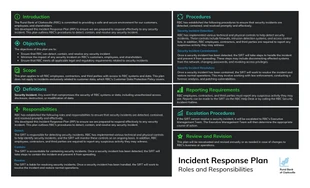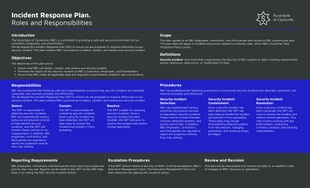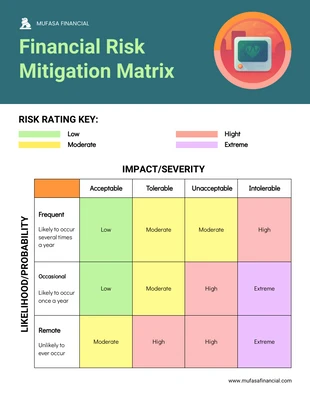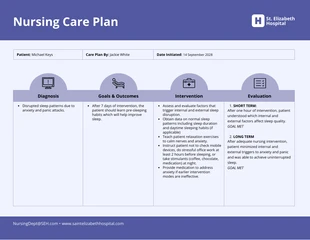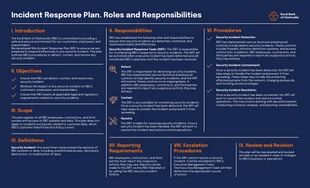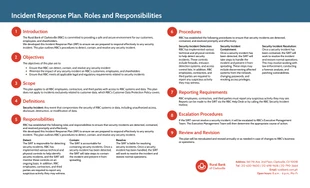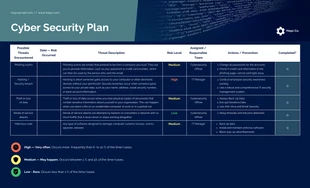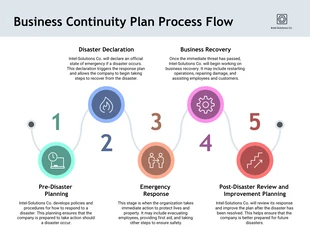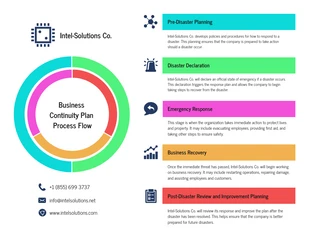
Cyber Incident Response Plan Template
Quickly respond to and effectively contain any security breach by customizing this cyber incident response plan template.
100% customizable templates
Millions of photos, icons, charts and graphics
AI-powered editing features
Effortlessly share, download, embed and publish
Easily generate QR codes for your designs
- Design stylemodern
- Colorslight
- SizeLegal (14 x 8.5 in)
- File typePNG, PDF, PowerPoint
- Planfree
Data is the lifeblood of every organization. It helps us make decisions, communicate with buyers and suppliers, and run our operations. You can harness data to improve customer service, target marketing efforts, and track performance. As information is valuable, we must store it securely. Now that technology is more advanced, organizations have many tools to help them do just that. However, as our dependence on technology increases, so does our vulnerability to cyber-attacks. Cyber incidents can devastate a company, causing significant financial loss, reputational damage, and operational disruption. To avoid this, cyber security must be a business priority. Cyber security guards against unauthorized access to and theft of computer systems, networks, and data. It includes installing firewalls and antivirus software, ensuring that sensitive data is only accessible to authorized users, and encrypting data. Cyber security training can teach employees how to identify and avoid potential threats. A cyber incident response plan is critical to data security. It is a set of procedures followed during a security breach or other emergency. The primary objective of a cyber incident response plan is to contain the damage, avoid
